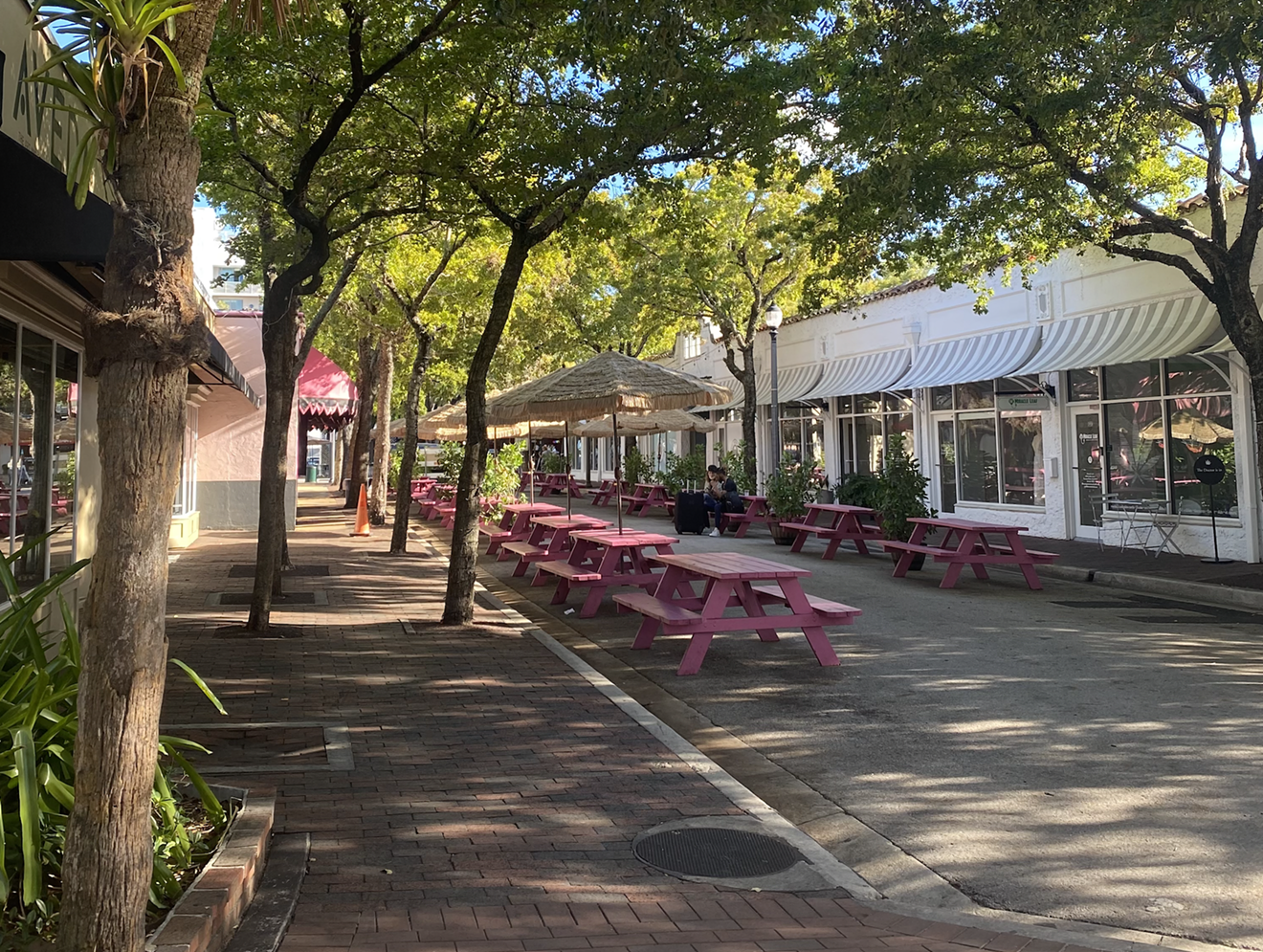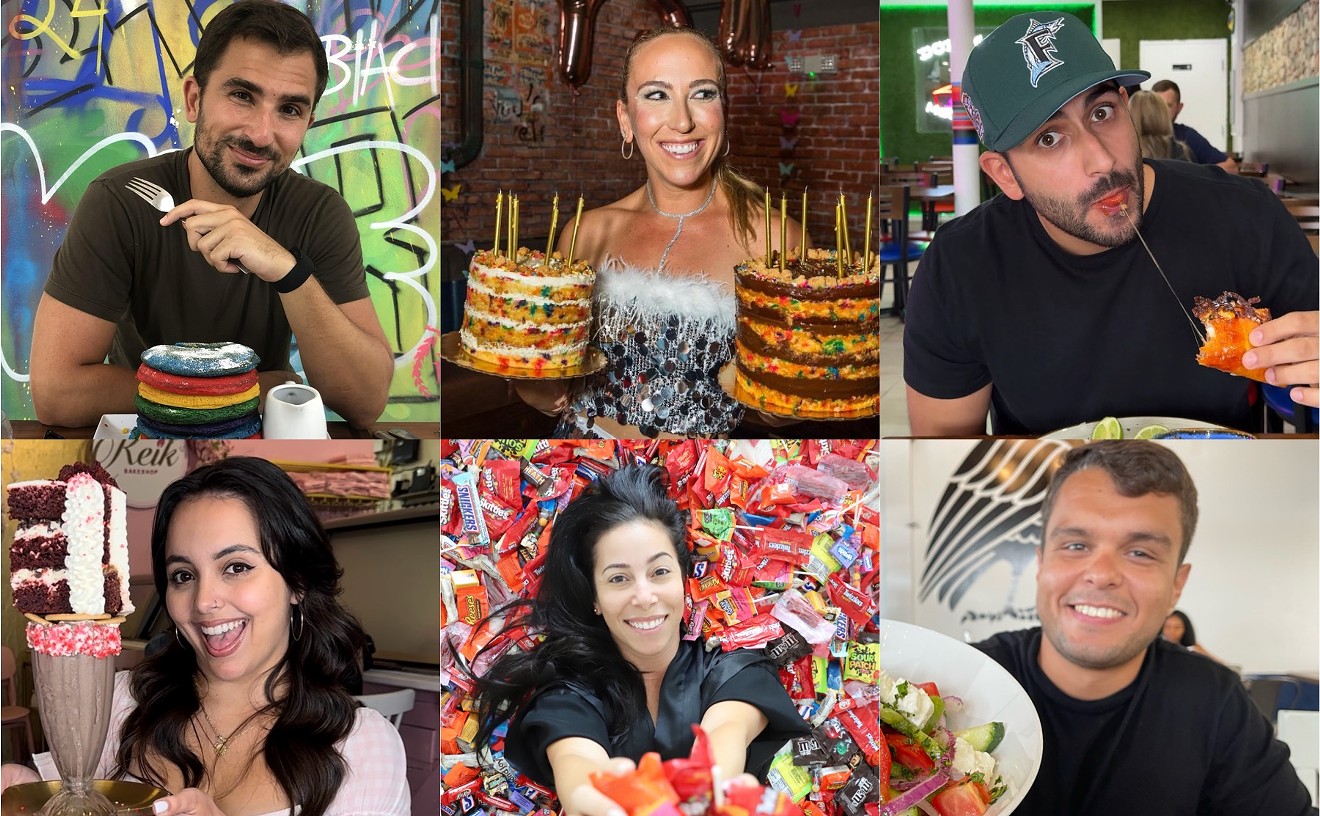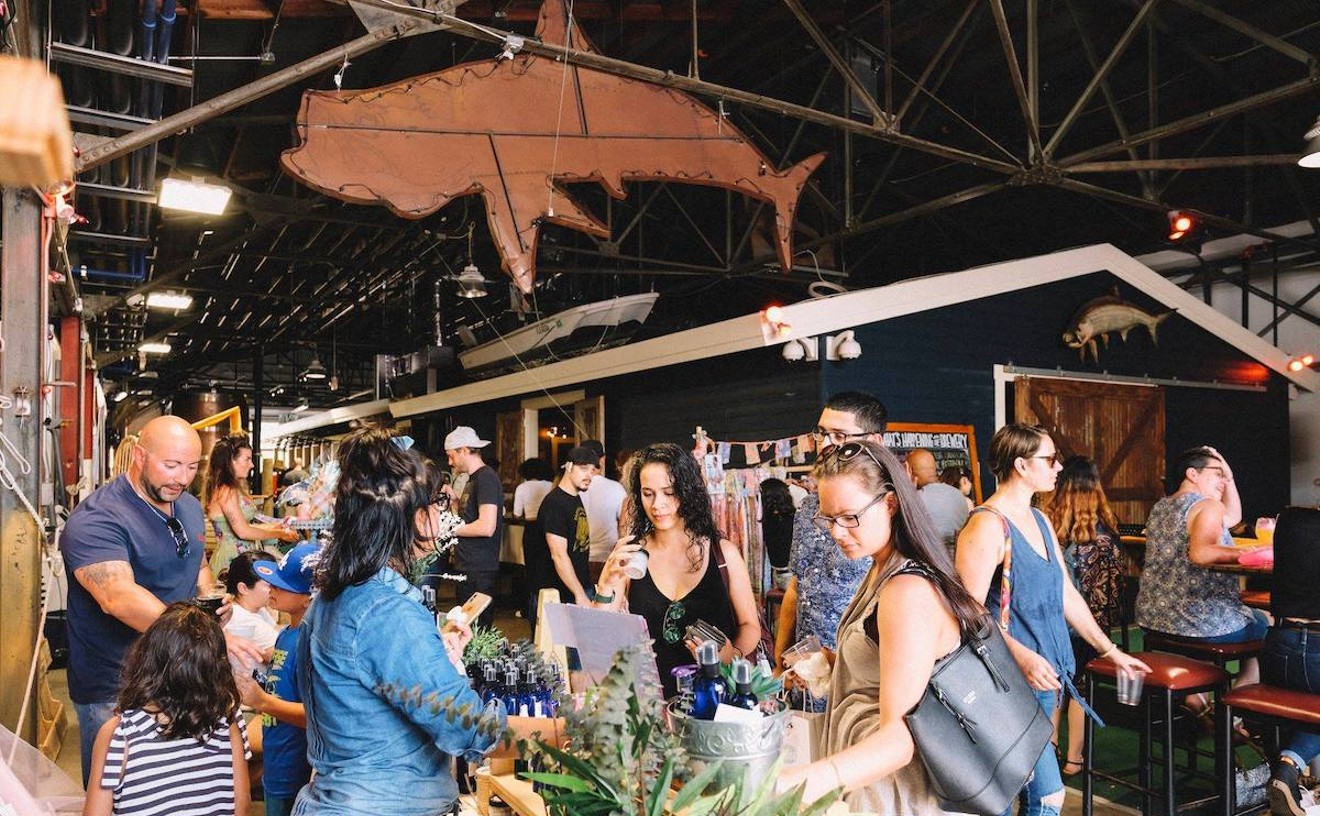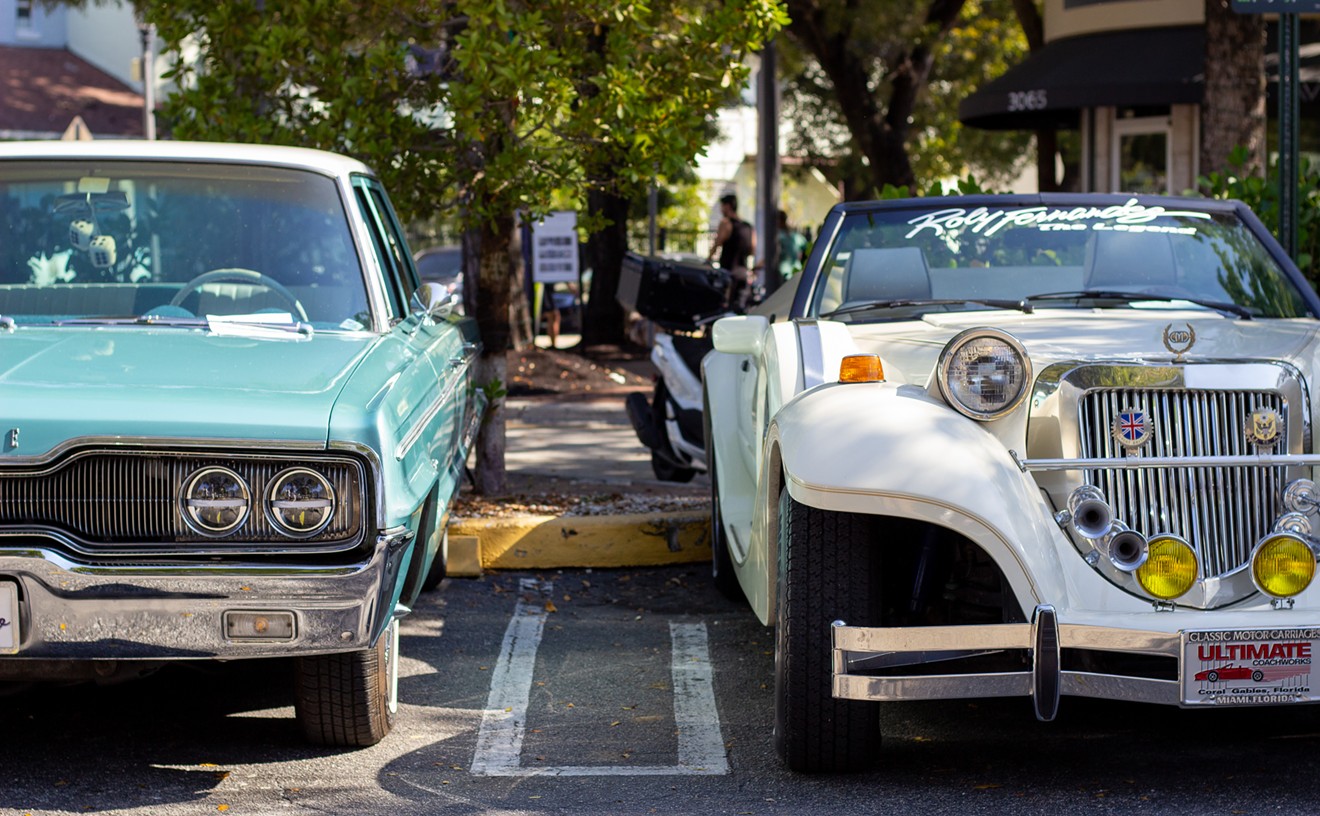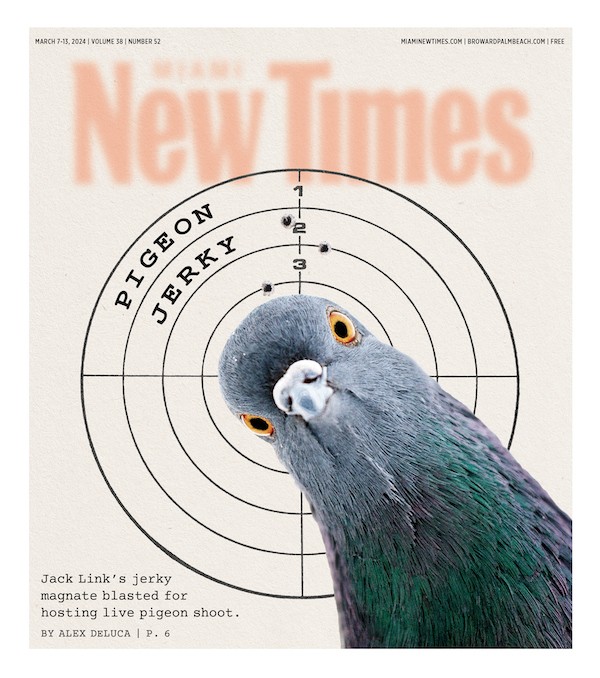Although the neighborhood is something of a nexus of the city proper, it has long retained an aura of separateness, thanks to its longevity, its unique setting and architecture, its laid-back atmosphere, and its charm.
To love the Grove today is to understand and honor its history, which includes its past restaurateurs.
A mecca for artists and hippies in the 1970s, the Grove became a drug haven for those residing in Miami during the "Cocaine Cowboys" heyday of the late '70s and '80s, when drug kingpins boarded at the infamous Mutiny Hotel (among other Grove hotspots). Time passes, and things have changed, and the Grove has evolved into something different: a lush residential oasis for those who can afford it (or whose parents and/or grandparents could afford it, because who'd dare to leave with Miami real estate values being what they are?).
Those who haven't driven along Main Highway since the pandemic descended may not recognize the place, what with new boutiques like LoveShackFancy, the new and glamorous Mr. C Hotel that houses Italian restaurant Bellini, and high-end restaurants like Amal. Coconut Grove has also evolved into an exciting culinary neighborhood.
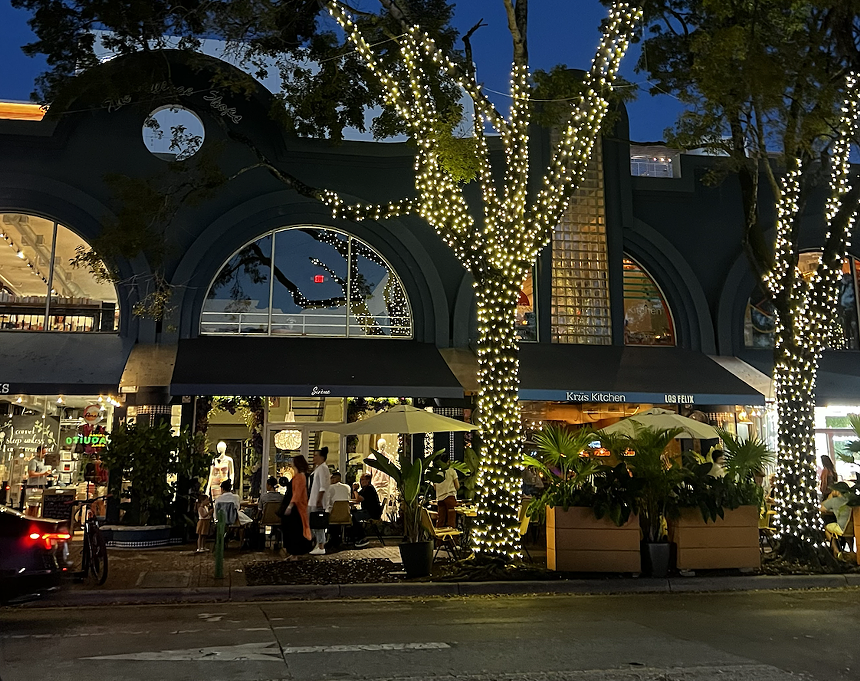
Main Highway in Coconut Grove is now filled with new restaurants, shops, and plenty of foot traffic.
Photo by Nicole Lopez-Alvar
Although these new additions to the neighborhood are a breath of fresh air and have helped fuel a local economy that had struggled in the years leading up to the COVID-19 shutdown, the Grove we know today would not exist, were it not for the old-school restaurants that preceded them — some of which continue to carry on.
Like Jaguar, founded by Eduardo "Lalo" Durazo and now owned by Oscar Del Rivero of Jaguar Restaurant Group. And the former Peacock Garden Cafe (another Durazo creation), and Sapore di Mare, owned by Italian natives Matteo Paderni of Florence and Giorgia Calabrese of Naples.
When Durazo opened Jaguar Ceviche Spoon Bar and Latam Grill in 2005, he was ahead of his time in Miami's culinary world. A favorite among locals and a must-visit for tourists in the mid-to-late 2000s, Jaguar quickly became a Coconut Grove staple, and it remains one to this day.
"We bought the property in 2004 and opened for business in February 2005, which was 19 years ago," Durazo tells New Times. "We looked at Coral Gables and Miami Beach, but my sister and I fell in love with the Grove — we were already living there. We had tourists in the Grove, of course, but more than that, it was a community."
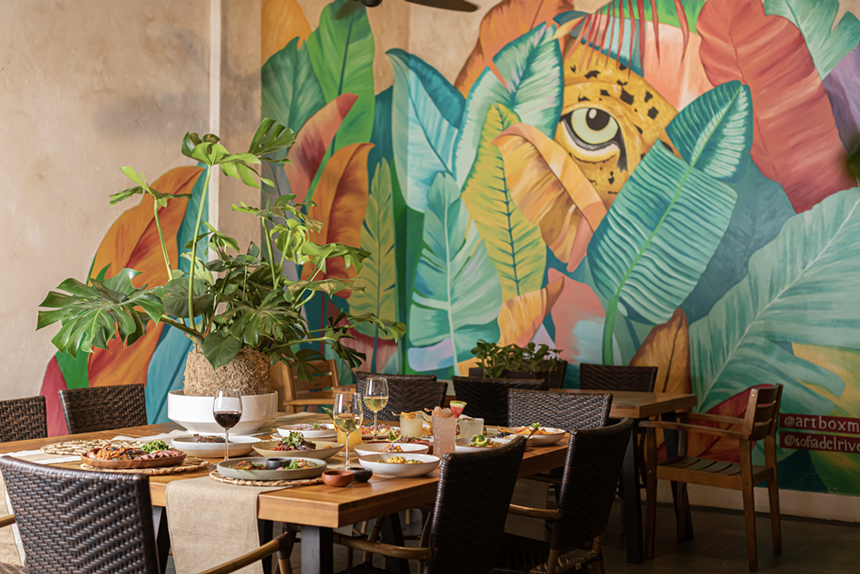
A favorite among locals and a must-visit for tourists in the mid-to-late 2000s, Jaguar quickly became a Coconut Grove staple, and it remains one to this day.
Jaguar photo
Though he sold Jaguar in 2019, he owns the newly opened Koko by Bakan just down the block, and why would he ever leave? "You felt that people that lived in the Grove have been here for many years and they were here year-round," he says. "We had the snowbirds coming, of course, but there's a very large full-time community — not so much a tourist environment like in Miami Beach. This is why tourists are drawn to visit, though, because it's been such an iconic neighborhood since the '70s, and it's the oldest community in the area."
"The people who have chosen to live and open restaurants in the Grove — they want that vibe of the Grove, which is not pretentious," Durazo adds. "They appreciate quality, they know great quality. They want a laid-back community vibe to live and to work in.”
Matteo Paderni of Sapore di Mare, an Italian staple in the neighborhood since 2014, agrees.
"We're supposed to be the new Ocean Drive, but we will never destroy the beauty of our city," he declares. "Sometimes the architecture of a city can really mess with the beauty of a town, but this is not the case in Coconut Grove. Its developers focus on keeping its true identity and beauty."
He pauses, then sounds a note of caution. "I hope they don't start to build too much."
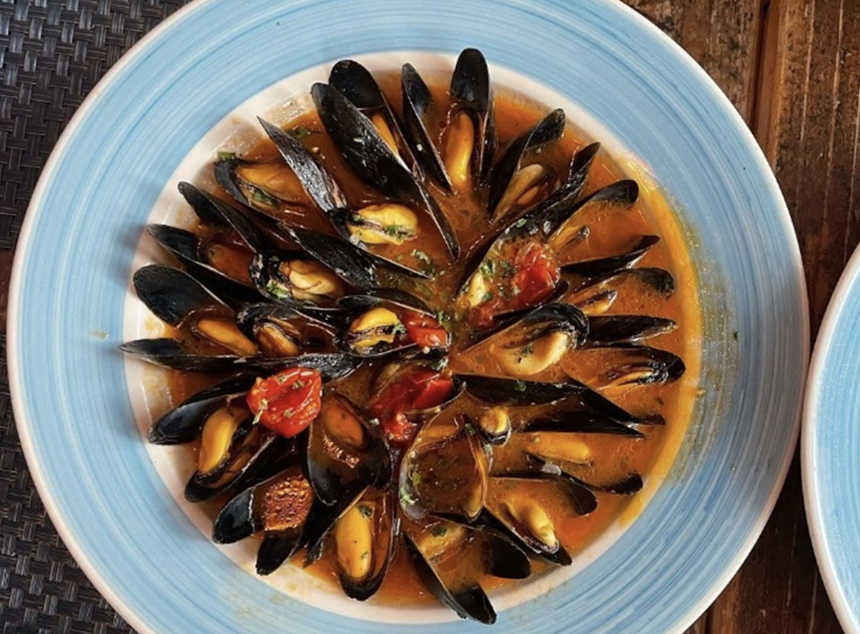
Matteo Pademi has built a loyal fanbase with his authentic Italian recipes and warm atmosphere at Sapore di Mare in Coconut Grove.
Sapore di Mare photo
What, then, is the "secret sauce" for maintaining longevity in an evolving neighborhood like Coconut Grove? On this Durazo and Paderni concur: It's staying true to their roots, which means quality over quantity, and treating guests like family.
"Our restaurant has maintained as a staple here because we are 100-percent Italian," Paderni says. "I even travel to Italy every year to make sure I don't lose any flavors of the ingredients we use here — in Italy, we use no more than three ingredients per dish. My parents even come from Italy every year to make sure we don't mess around with any dish."
Although times have changed, and the Grove may seem busier than ever before, developers, architects, and restaurateurs alike appear committed to respecting the neighborhood's original charm so that restaurants old and new can continue to flourish in harmony.
Coconut Grove is evolving, but it's not changing. And that's a good thing worth preserving.
